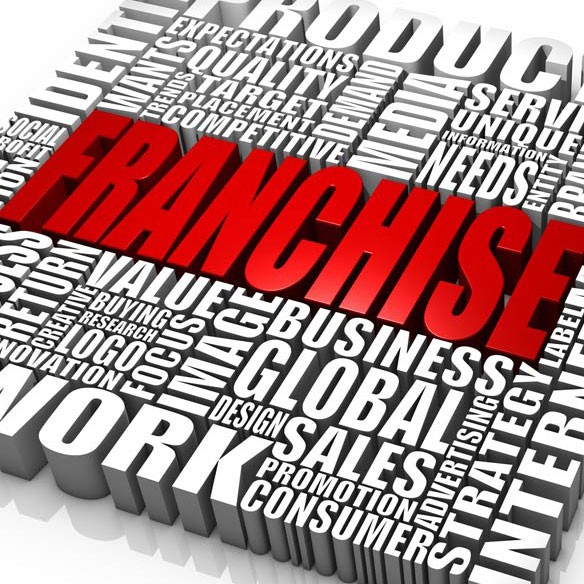A franchise can exist even when it is not called a “franchise” by name. By statute, certain dealers and distributorship programs can actually be classified as franchises. If you have any questions whether your brand expansion is a franchise or not, contact a knowledgeable franchise attorney.
Franchises are typically utilized for business expansion. There are traditionally two parties to a franchise transaction. First, is the “franchisor” who is the original business owner desiring to expand their business into new territories or markets. The second is the “franchisee” who is the person/investor looking to own and operate a new business in the Franchisor’s desired market and industry.
The Franchise industry is heavily regulated. Under federal law and those states that have franchise disclosure statutes, three essential elements must be present before a business relationship will be considered a franchise. The franchisor must:
- Promise to exercise significant control or provide significant assistance in the operation of the business, usually providing a plan to sell or distribute goods or services under a marketing plan or scheme; and
- Promise to provide a trademark, trade name, service mark, commercial symbol / logo or specific form of advertising for the sale or distribution of the goods or services; and
- Promise to accept the payment, direct or indirect, initial or continuing fee, for the right to sell the goods or services, amounting to at least $500 during the first six months of operations.
The “Significant Control or Assistance” element. The new 2007 rule covers business arrangements where a franchisor “will exert or has the authority to exert a significant degree of control over the franchisee’s method of operation, or provide significant assistance in the franchisee’s method of operation.”[1] So when does the control or assistance exerted become significant? The short answer is when the franchisee relies on it. Types of significant control can include:
- Specified or limited area of operation
- Promotional campaigns requiring franchisee participation or financial contribution
- Preset Accounting practices
- Defined Hours of operation
- Site approval for unestablished businesses
- Restrictions on customers
- Personnel policies
- Production techniques
- Site design or appearance requirements
Types of significant assistance include:
- Furnishing a detailed operating manual
- Selecting site locations
- Establishing accounting systems
- Formal sales, repair, or business training programs
- Furnishing management, marketing, personnel advice
- Furnishing system wide networks and websites
The legal statutes may also look to inventory controls, required displays of goods, and on-the-job assistance with sales or repairs to find “significant control or assistance.” The “Trademark” element. A franchise gives the right to operate a business that is “identified or associated with the franchisor’s trademark, or to offer, sell, or distribute goods, services or commodities that are identified or associated with the franchisor’s trademark.”[2] Trademark broadly covers any mark, including service marks, logos, trade names or other advertising or commercial symbols.
The “Required Payment” element. The franchisees “must be required to pay to the franchisor (or its affiliate), as a condition of obtaining a franchise or staring operations, a sum of at least $500 at any time prior to or within the first six months of the commencement of operations of the franchised business.”[3] Under the definition, payment is broadly interpreted to comprise any required payments, such as the:
- Initial franchise fee,
- Continuing royalties on sales,
- Rent,
- Equipment rental,
- Advertising assistance,
- Promotional literature,
- Equipment and supplies (including such purchases from third parties if the franchisor or its affiliate receives payment as a result of the purchase),
- Non-refundable bookkeeping charges
- Training,
- Escrow deposits, and
- Security deposits.
Also, the payments that are a practical necessity fall under the required payment element. One example would be a charge for equipment that can only be obtained from the franchisor or its affiliate. However, some payments can fall outside of the “required payment” element. One example is the “inventory exception” where there are payments for the purchase of reasonable amounts of inventory at bona fide wholesale prices for resale or lease.[4]
Exemptions from the FTC Rule. The FTC rule does not cover, exempts or excludes:
- Business Opportunities (there are different rules for Business Opportunities)
- Sales of Franchises to be located outside of the United States and its Territories
- Minimum Payment Exemption
- Fractional Franchise Exemption
- Leased Department Exemption
- Oral Agreements Exemption
- Petroleum Marketers and Resellers Exemption
- Large Franchise Investment Exemption
- Large Franchisee Exemption
- The “Insiders” Exemption
- Employer-Employee Relationship Exclusion
- General Partner Relationship Exclusion
- Cooperative Associations Exclusion
- Certification or Testing Services Exclusion
- Single Trademark License Exclusion
For in depth analysis, please speak with a franchise attorney to determine whether your business might qualify for one of these exemptions or exceptions.
Remember that a franchise can exist even when it is not called a “franchise.” If you have any questions whether your brand expansion is a franchise or whether you qualify for any exemptions or exceptions, you should contact a knowledgeable franchise attorney.
References
[1] FTC Rule. 16 C.F.R. Part 436
[2] Id
[3] The Federal Trade Commission Compliance Guide
[4] Original Interpretive Guide, 44 Fed. Reg. at 49,967

